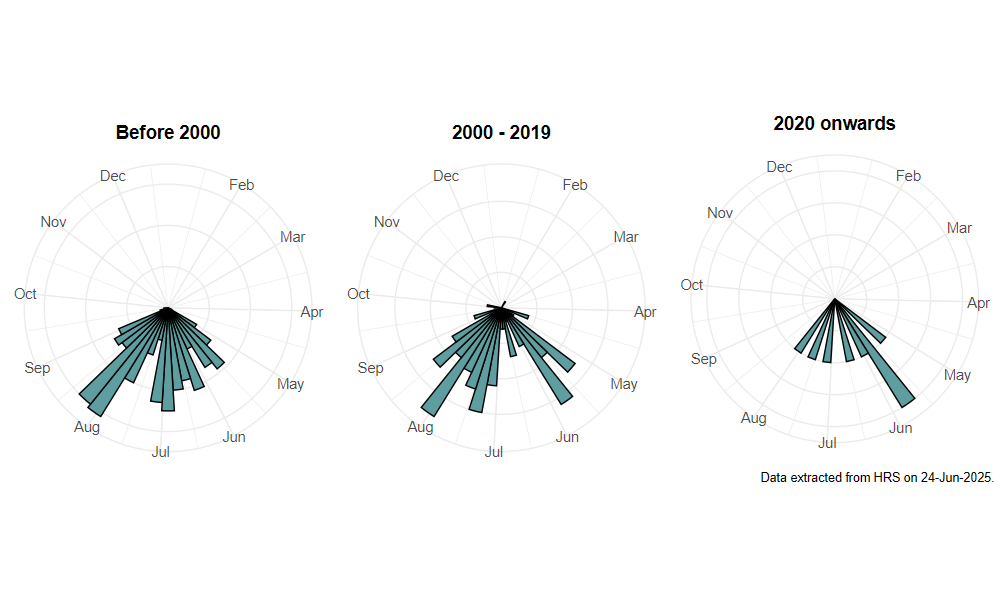Sphaerophoria batava Goeldlin de Tiefenau, 1974
Identification
Identification difficulty = 4. ![]()
![]() according to Ball & Morris, 20241
according to Ball & Morris, 20241
Biology
Larva unknown. Records which give habitat details most frequently refer to open rides in conifer woods (including native Scots Pine Pinus sylvestris woods in Scotland, and conifers planted on dunes on Anglesey) where specimens have been swept from heather or found on flowers such as Tormentil Potentilla erecta. Other records mention deciduous woodland and heathland. Adults are usually swept from tracksides or clearings or found visiting flowers. In our experience the common feature is the presence of Heather Calluna vulgaris and it seems likely that there is an association with aphids linked to this plant.
Flight period
The following plots show the number of unique records per week excluding those reported to be of immature stages.

Distribution
A scarce but widely distributed species, with the majority of records from southern England, but extending to northern Scotland where it is well-established in the Spey Valley and surrounding pine woods. It is also known from Culbin Sands on the Moray Firth.

Trends
The following plots show the Frescalo TFactor vs year and a map of the rescaled frequency (all records) for the species.
-
Ball, S., & Morris, R. (2024). Hoverflies of Britain and Ireland. WILDGuides (3rd ed.). Oxford: Princeton University Press. ↩